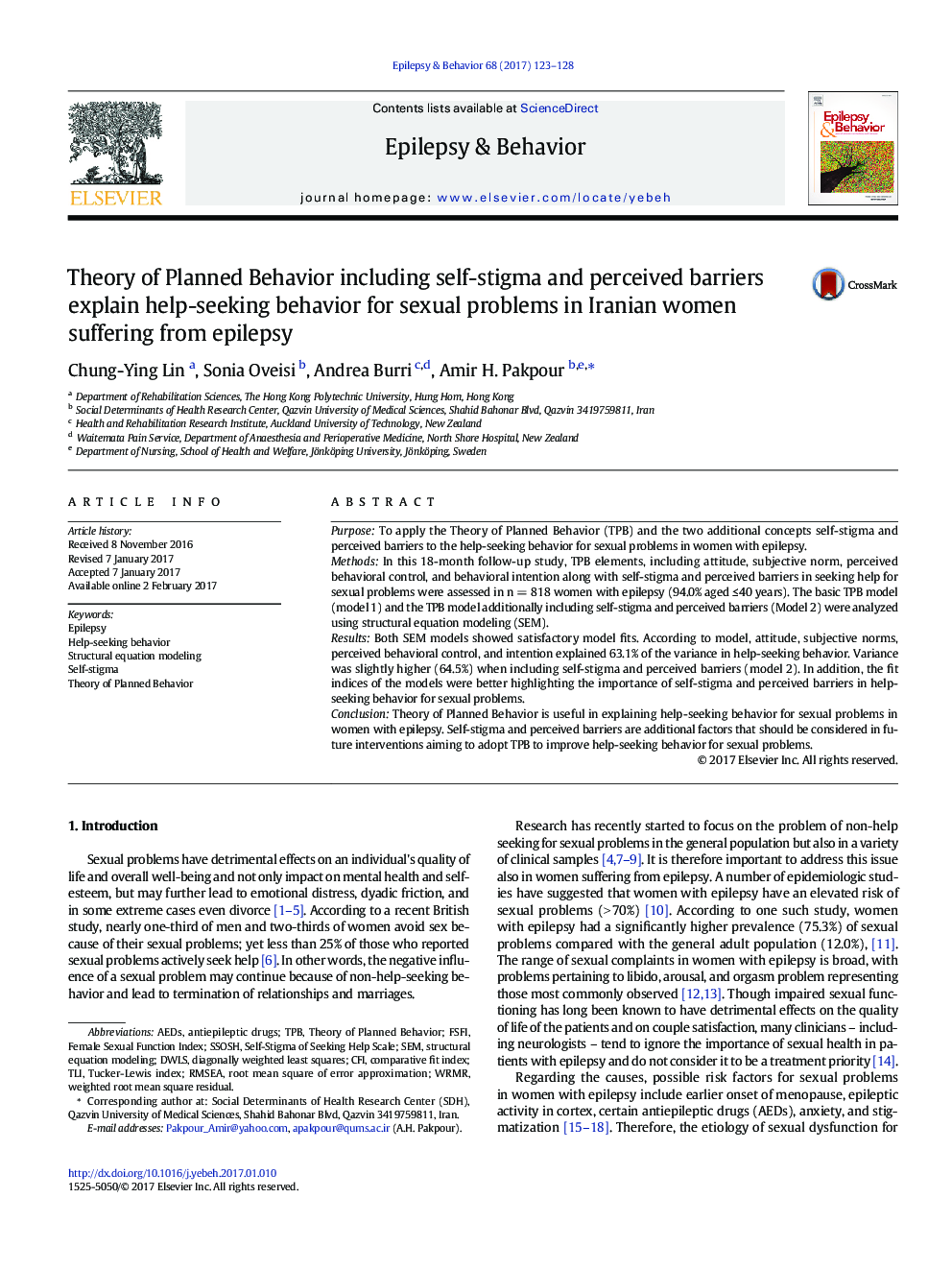| کد مقاله | کد نشریه | سال انتشار | مقاله انگلیسی | نسخه تمام متن |
|---|---|---|---|---|
| 5628047 | 1579824 | 2017 | 6 صفحه PDF | دانلود رایگان |
- A high proportion of women with epilepsy encounter sexual problems.
- Women with epilepsy who had sexual problems may not seek help.
- Theory of Planned Behavior explains seeking help behaviors for women with epilepsy.
- Self-stigma explains non-seeking help behaviors for women with epilepsy.
- Perceived barriers explain non-seeking help behaviors for women with epilepsy.
PurposeTo apply the Theory of Planned Behavior (TPB) and the two additional concepts self-stigma and perceived barriers to the help-seeking behavior for sexual problems in women with epilepsy.MethodsIn this 18-month follow-up study, TPB elements, including attitude, subjective norm, perceived behavioral control, and behavioral intention along with self-stigma and perceived barriers in seeking help for sexual problems were assessed in n = 818 women with epilepsy (94.0% aged â¤Â 40 years). The basic TPB model (model 1) and the TPB model additionally including self-stigma and perceived barriers (Model 2) were analyzed using structural equation modeling (SEM).ResultsBoth SEM models showed satisfactory model fits. According to model, attitude, subjective norms, perceived behavioral control, and intention explained 63.1% of the variance in help-seeking behavior. Variance was slightly higher (64.5%) when including self-stigma and perceived barriers (model 2). In addition, the fit indices of the models were better highlighting the importance of self-stigma and perceived barriers in help-seeking behavior for sexual problems.ConclusionTheory of Planned Behavior is useful in explaining help-seeking behavior for sexual problems in women with epilepsy. Self-stigma and perceived barriers are additional factors that should be considered in future interventions aiming to adopt TPB to improve help-seeking behavior for sexual problems.
Journal: Epilepsy & Behavior - Volume 68, March 2017, Pages 123-128
